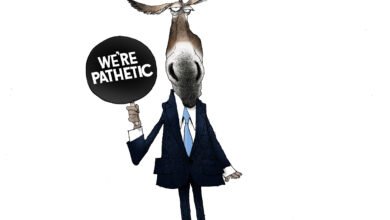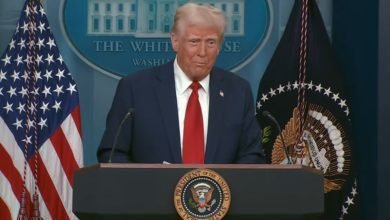Liberal SCOTUS Justices Give Icy Reception To Proposal That Would Greenlight Publicly Funded Religious Charter Schools

The Supreme Court’s three liberal justices sharply questioned an effort to establish the nation’s first publicly funded religious charter school during oral arguments on Wednesday.
The court’s conservatives seemed to favor St. Isidore of Seville Catholic Virtual School’s bid to join Oklahoma’s state charter school program, though Chief Justice John Roberts’ position, which could be decisive in the absence of Justice Amy Coney Barret, who recused from the case, was unclear.
“Are you saying that the religious charter schools’ use of public funds to support proselytization, which the school says it intends to do, is not an Establishment Clause problem?” Justice Ketanji Brown Jackson asked U.S. Solicitor General John Sauer. “Like we wouldn’t have to look at where the funding is going, even if the school says yes, we are getting money from the state and we are turning around and buying Bibles and instructing students.”
While the Oklahoma Statewide Charter School Board initially approved St. Isidore of Seville Catholic Virtual School’s application in 2023, Oklahoma Attorney General Gentner Drummond sued to challenge the decision. The Oklahoma Supreme Court ordered the board in June 2024 to rescind the contract, finding it violated the First Amendment’s Establishment Clause and state law prohibiting public funds from going to a religious institution because the school is a state actor.
St. Isidore and the board argue schools must be created and controlled by the government to be state actors. Gregory Garre, arguing for the Oklahoma attorney general’s office, said charter schools are public schools and “teaching religion as truth in public schools is not allowed.”
“These schools look like regular public schools,” Justice Elena Kagan said.
Justice Sonia Sotomayor said the essence of the Establishment Clause is “that we are not going to support lay religious leaders in teaching their religion.”
Turning to history to evaluate whether the school violates the Establishment Clause is “crazy,” Sotomayor said, stating “no one thought there was an obligation of the government to provide funding at all” for most of the country’s early history.
“We don’t use the history of segregation to interpret the Equal Protection Clause now,” she said. “I doubt very much we would use that history of the federal government funding the churches to teach Indian children and convert them as proving anything about the Free Exercise or Establishment Clause now.”
This morning the U.S. Supreme Court will take up whether Oklahoma should proceed with what would be the country’s first government-created , taxpayer-funded religious public charter school. I contend this proposal would have grave consequences for religious liberty. The justices… pic.twitter.com/376aFNoBP2
— Oklahoma Attorney General Gentner Drummond (@Okla_OAG) April 30, 2025
In a line of key cases, including Carson v. Makin in 2022, the Supreme Court has held religious groups can not be excluded from public benifit programs. Roberts questioned whether the state is involved with charter schools to a greater degree.
“This does strike me as a much more comprehensive involvement,” he said. However, Roberts later also expressed skeptism towards the Oklahoma’s attorney general office.
Justice Samuel Alito questioned whether a charter school could push a secular viewpoint instead of a religious viewpoint.
“Could a school say, we are going to be an LGBTQ+ friendly school?” he asked.
Justice Kavanaugh says excluding a Catholic charter school from Oklahoma’s state program seems like “rank discrimination against religion.” pic.twitter.com/PSPW74ZYmz
— Katelynn Richardson (@katesrichardson) April 30, 2025
Alito also suggested the position of the attorney general’s office was “motivated by hostility towards particular religions.”
“We have statement after statement by the attorney general that reeks of hostility toward Islam,” he said. “And then we have the provision of the Oklahoma constitution on which the Oklahoma Supreme Court relied has its own unsavory discriminatory history.”
Justice Brett Kavanaugh said excluding Catholic schools from the state’s program seems like “rank discrimination against religion.”
“Our cases have made very clear, those are some of the most important cases we have had, of saying you cannot treat religious people and religious institutions and religious speech as second class in the United States,” he said.
Content created by The Daily Caller News Foundation is available without charge to any eligible news publisher that can provide a large audience. For licensing opportunities of our original content, please contact licensing@dailycallernewsfoundation.org




